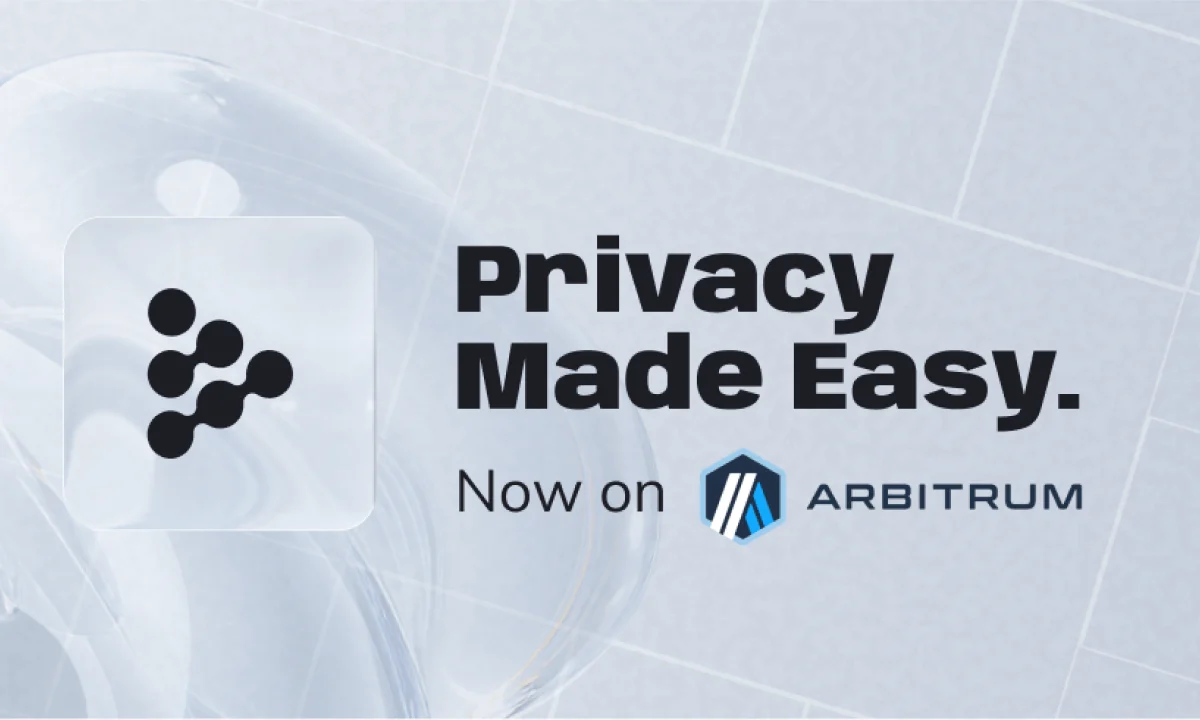iExec Brings Confidential Computing to Arbitrum, Privacy for DeFi, AI and Gaming

iExec has rolled out its privacy framework on Arbitrum, marking the platform as the first Trusted Execution Environment (TEE)-based privacy tools provider available to builders inside the $3.15 billion TVL Arbitrum ecosystem. The deployment lets developers add confidential computing features to apps across AI, DeFi and gaming, without the burden of managing the underlying infrastructure.
The launch gives Arbitrum teams access to a ready-made privacy stack that supports encrypted processing, access controls for sensitive data, and trusted off-chain functions via prebuilt components. In practice, that means developers can mask user data, run confidential computations, and protect transactions from front-running or surveillance while keeping apps scalable and lowering operational overhead.
“iExec’s is making privacy an easy-to-implement feature for developers, not an afterthought that needs to be shoehorned into applications post-launch,” said Chase Allred, Partnerships Manager for Offchain Labs. “Launching on Arbitrum puts a powerful set of developer tools directly in the hands of builders in one of the largest DeFi ecosystems, removing the friction of TEE and enabling new classes of applications. We look forward to seeing what is built.
A number of early adopters on Arbitrum are already integrating iExec privacy tools, including Ototamto, DexPal, 1xBuild, Incentive Finance, TempWallets and ApeBond. iExec says the deployment is the first phase of a broader multi-chain rollout: the revamped framework was designed for rapid integration across EVM-compatible networks and will be extended to other chains in the coming months.
The Arbitrum launch has been supported by ecosystem partners such as AR.IO, with whom iExec co-launched Web3Telegram, as well as Aethir and security auditor Halborn. iExec’s privacy layer is powered by the RLC token; the company says every private transaction, protected dataset and confidential computation on Arbitrum will contribute to the circulation and utility of RLC.
Making Privacy Developer-friendly
One of the central promises of iExec’s framework is developer convenience. By packaging TEE capabilities into easy-to-integrate tools, iExec seeks to remove the technical friction of confidential computing. Builders can therefore ship privacy-first features natively, for example, encrypted auctions, private order books, or confidential machine-learning inference, without having to provision or maintain specialized hardware.
For users, the expected benefit is greater control over personal data and transactional privacy. For builders, the benefit is faster time to market and lower operational costs: developers can rely on iExec’s managed tooling rather than building bespoke privacy stacks from scratch.
iExec’s deployment is pitched as an enabler for a new wave of Web3 applications that require both privacy and scale. In DeFi, private order flows can reduce front-running and protect sensitive trading strategies. In gaming and social applications, confidential computation can protect user identities and allow monetization models that respect data ownership. And in AI, private inference and training unlock models that can operate on sensitive data without exposing it publicly.
The company says it will actively support builders and users as it expands its EVM-wide privacy tooling, providing resources to help projects deploy the stack successfully. The goal, iExec frames it, is to make privacy a default feature of the stack rather than a retrofitted option.
Why this Matters
Arbitrum is one of the largest Layer-2 networks by TVL, and placing a TEE-backed privacy stack into that environment lowers the barrier for privacy-centric innovation at scale. Each integration, iExec argues, not only protects users but also drives more activity and new use cases back into the ecosystem, creating a virtuous cycle of adoption.
iExec frames itself as “the builders’ home for privacy tools,” offering programmable governance, data protection, and confidential processing as part of a broader toolkit. With Arbitrum now onboard, the company’s next steps appear aimed at spreading that capability across EVM chains, giving more teams the option to build fast, private, and user-centric Web3 experiences.
You May Also Like

Gold Hits $3,700 as Sprott’s Wong Says Dollar’s Store-of-Value Crown May Slip

Ethereum unveils roadmap focusing on scaling, interoperability, and security at Japan Dev Conference
